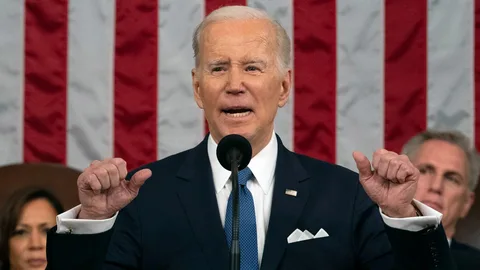President Joe Biden, along with key members of his national security team, conveyed to Israeli counterparts that the United States would refrain from engaging in any retaliatory measures against Iran following a recent onslaught of Iranian missiles and drones directed towards Israel. This stance was outlined in discussions with Prime Minister Benjamin Netanyahu, where Biden emphasized Israel’s successful interception of the Iranian assault as a significant achievement, indicating that further Israeli response might be unnecessary.
Joe Biden’s Perspective
During the conversation, Biden underscored Israel’s effective defense against the attacks, portraying it as a demonstration of Israel’s military and diplomatic superiority. The U.S. assessment reported no substantial damage within Israel itself, reinforcing Israel’s capability to deter such threats.
While the U.S. affirmed its commitment to defending Israel, it made clear that it would not be directly involved in any response actions. Defense Secretary Lloyd Austin requested prior notification from Israel regarding any potential response to the Iranian attack, underscoring the collaborative approach between the two nations.
To prevent further escalation, Biden engaged with fellow Group of Seven leaders to discuss a unified diplomatic strategy. The G7 condemned Iran’s actions and expressed solidarity with Israel, emphasizing the need to avoid regional destabilization.
Despite Biden’s counsel for strategic consideration, Netanyahu’s response remains uncertain. The situation underscores the complexity of U.S.-Israeli relations and the challenges of managing tensions in the region.
Iran’s attack from its own territory escalates tensions, with potential political pressure on Israel for a response. However, both the U.S. and Israel remain cautious about triggering a broader conflict.
The White House maintained vigilance, with Biden regularly briefed on developments. Preparations preceding the attack and ongoing discussions with regional partners reflect efforts to anticipate and manage such crises effectively.






